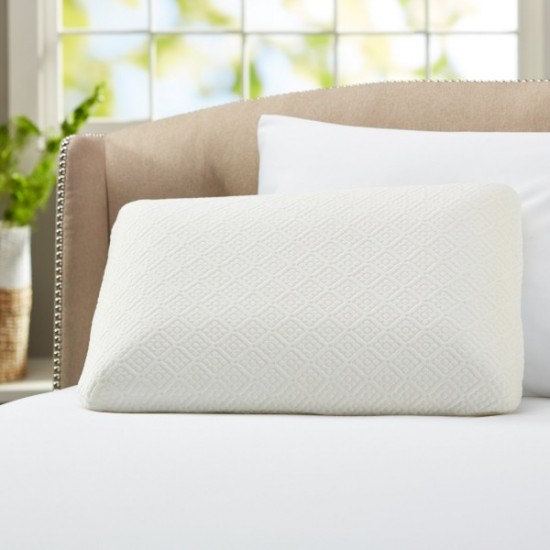<p>Pillows are our best on the bed and we should choose ideal pillows, because we spend nearly a third of lifetime with them. Pillows can determine our sleep quality and poorly designed pillows could cause us sleep ineffectively. The right pillow could ensure better sleep and more comfort. Many people don’t give a passing though with their pillows, so we owe it to ourselves to give a more careful consideration to pillow choice.</p>
<p>The pillow section in stores could offer an overwhelming array choice, but our goal should be to find one that can provide us with decent sleep. We shouldn’t be a cheapskate and spend months of sleepless nights. We should also know the different between good-looking pillows and the actual sleeping pillow. Good-looking pillows may look nice on our bed, but they don’t always make us feel good when sleeping. On the other hand, sleeping pillows have one purpose of making sure that we will sleep well.</p>
<p><img class="aligncenter size-full wp-image-11613" src="https://medusamagazine.com/wp-content/uploads/2014/11/5-Things-To-Consider-When-Choosing-Pillows-e1417251496981.jpg" alt="5 Things To Consider When Choosing Pillows" width="550" height="550" /></p>
<p>Here are things to consider before purchasing a pillow:</p>
<h3><strong>1. Firmness:</strong></h3>
<p>Our sleeping position could be determined by the firmness of our pillows. Good pillows properly support our sping and head. Certain pillows are appropriate for back sleepers and others for side sleepers. Side sleepers should choose firmer pillows that can support their head. Back sleepers could find it convenient to sleep on a flatter; less firm pillows. In any case, we should make sure that our pillows support our head and spine well.</p>
<h3><strong>2. Size:</strong></h3>
<p>Pillows are available in multiple sizes, such as standard, queen and king. Standard pillows are usually the best for average consumers. Queen and King pillows can be too long or too large. However, size can be a matter of preference, because some people like to sleep with body-length pillows.</p>
<h3><strong>3. Cover:</strong></h3>
<p>The cover of our pillow is important because it prevents mites, dead skin and dust from getting into our pillow. It also blocks tiny particles from the inner material from entering our respiratory system. Many pillows with inadequate covering stick particles of feathers and cotton into our noses.</p>
<h3><strong>4. Filling:</strong></h3>
<p>The filling of pillow will determine our comfort. It affects the quality of air we breathe and how long our pillow may last. Cotton don’t typically cause allergy, but it could clump up rather easily after a period of use. Down blend could be risky for people with allergy. Hypoallergenic down should be a good alternative for people with allergy symptoms. However, it still depends on our sensitivity and not all hypoallergenic down could prevent symptoms of allergies.</p>
<p>Feather pillows could be filled with a combination of coarser feathers and down. Allergy sufferers should also be careful with feather pillows, because coarser pillows could poke through and scratch our nose and cheek. Polyester is also a good material, but it can also compact and clump up like cotton. Alternatively, we could choose siliconized polyester that’s more resistant to clumping.</p>
<p>About: RV is a local seo services professional and has been helping many small businesses since 8 years.</p>

5 Things To Consider When Choosing Pillows
